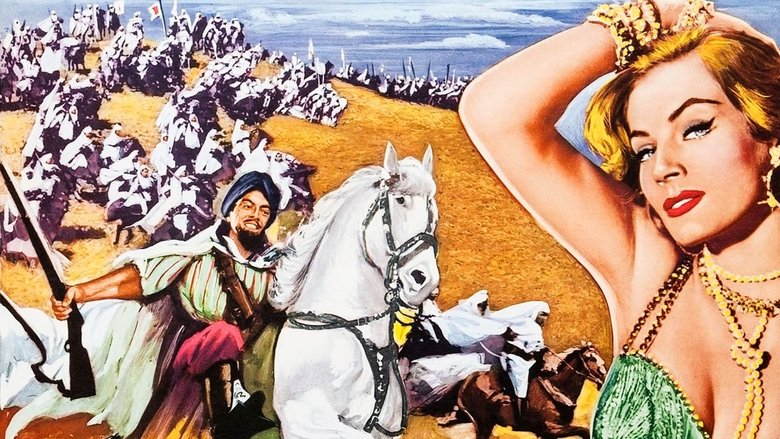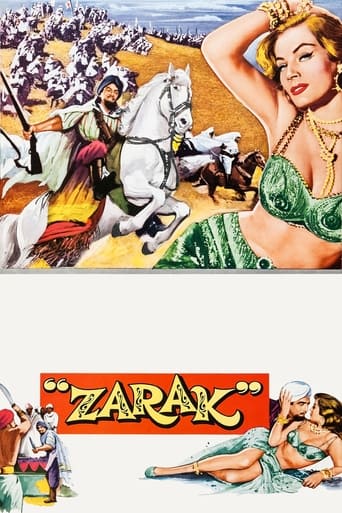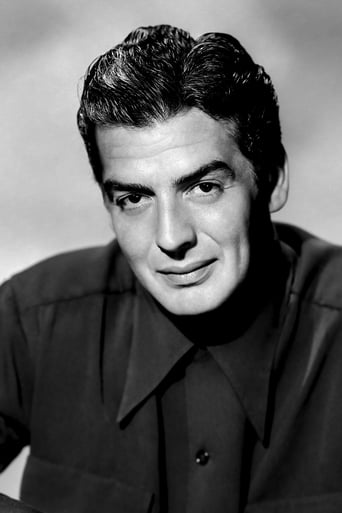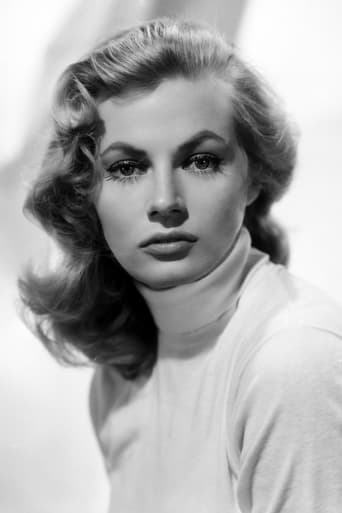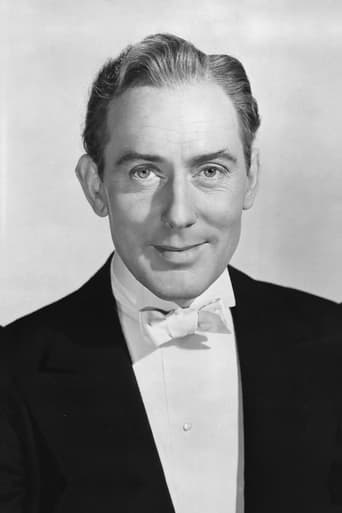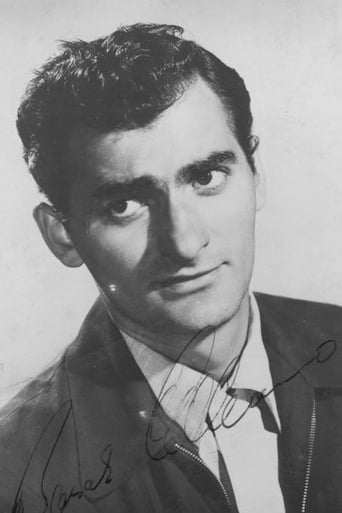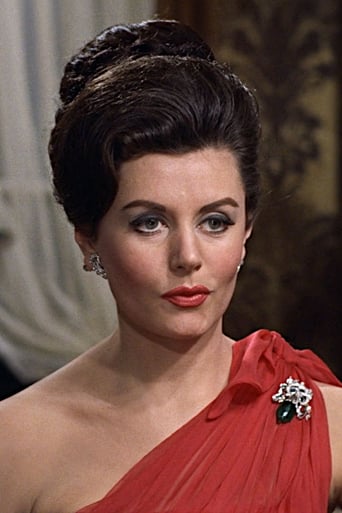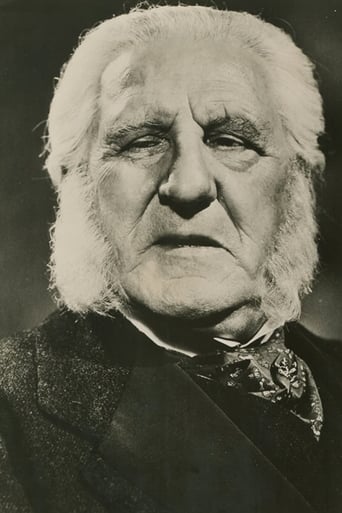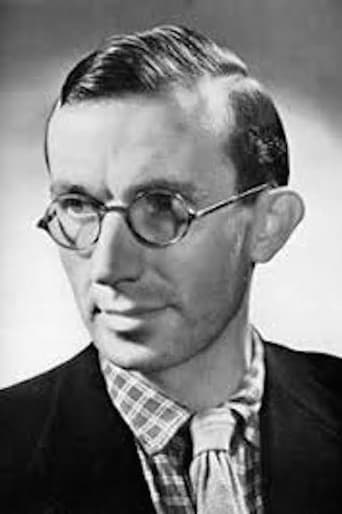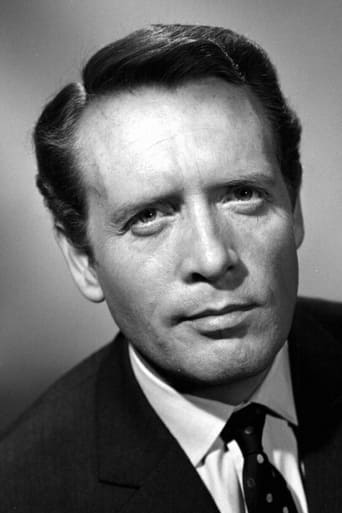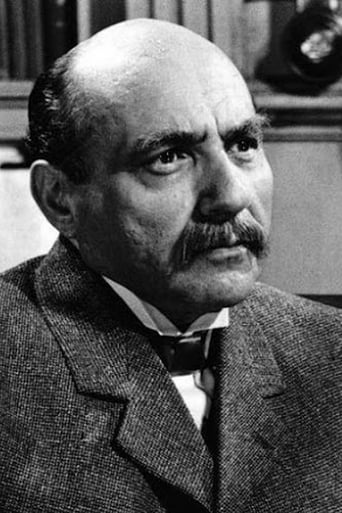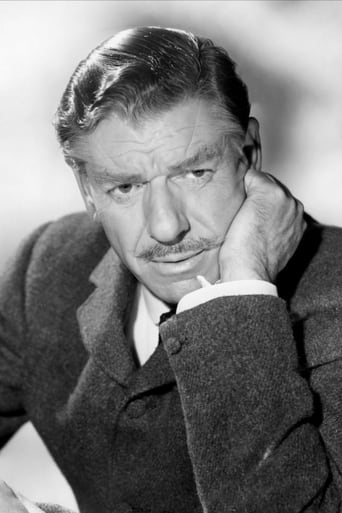A notorious bandit develops a grudging respect for the English military man assigned to capture him.
Reviews
Thanks for the memories!
The performances transcend the film's tropes, grounding it in characters that feel more complete than this subgenre often produces.
Exactly the movie you think it is, but not the movie you want it to be.
The film never slows down or bores, plunging from one harrowing sequence to the next.
Victor Mature puts on a turban and grows a beard to star as the title character in Zarak. It's the story of the eldest son of a clan chief who betrays his father with the father's youngest bride played by the Swedish Anita Ekberg. Just another case of an obviously Cauacasian woman playing an exotic Oriental and just by looks not carrying it off too well. Still she does what she can, Maureen O'Hara knew best of all how Anita felt cast in something like Zarak.After being banished from the tribe, Mature becomes a bandit chief and the scourge of the territory in what is now Pakistan. Michael Wilding is sent to bring in Mature dead or alive, but other tribes are starting to get restless.It maybe set in what was the real India then, but Zarak plays like an eastern western. Finlay Currie plays a mullah who pops in and out of the film at critical points in our protagonist's life. He's quite the saintly figure, more like a Christian saint than a Moslem one.All in all a routine action film that fans of Victor Mature will appreciate.
This desert-set adventure flick exemplifies the subtle difference between Hokum and Camp: recently, I had watched its star, Victor Mature, in THE VEILS OF BAGDAD (1953) spirited, tongue-in-cheek and generally exuding an air of unpretentious low-budget professionalism, it falls firmly into the former category; ZARAK, on the other hand, tries to be serious (with its religious/political undertones and calling into question familial/patriotic loyalties at times of stress) but is so relentlessly high-strung as to emerge a fount of virtually uninterrupted (but clearly unintended) hilarity! These are too numerous to cite and most have, in any case already subsided in my memory, but I can't fail to mention Mature's irrepressible resourcefulness though very obviously doubled at times when aroused (including high-kicking his opponents and vigorously hacking away at a rope-bridge on which his arch-nemesis Michael Wilding is hanging for dear life), stoicism in the face of torture and impending death and, particularly, his wallowing in self-pity (and hysterically funny subsequent haunting) after unwittingly bludgeoning to death the current Mullah of the mosque who had actually interceded for Mature during a public flogging and does the same, much to the latter's evident chagrin, for the British Major at the aforementioned bridge sequence! That is not to say ZARAK is a bad film in the strict sense of the word: for one thing, there's plenty of action throughout (some of it actually borrowed from the classic Alexander Korda production of THE FOUR FEATHERS [1939]!) but, to be sure, the narrative is inordinately muddled for this type of film (not only in delineating the plot or the hero's motivations, but also by having such a prominent character as that of Bernard Miles vanish altogether halfway through)! This was the second of six British-made actioners featuring Hollywood hunk Mature, filmed virtually back-to-back and after which his career would slowly grind to a stand-still; for the record, the others none of which I've watched were SAFARI (1956), INTERPOL (1957; also with co-star Anita Ekberg), THE LONG HAUL (1957), NO TIME TO DIE (1958) and the somewhat similar THE BANDIT OF ZHOBE (1959; actually directed by the co-story writer of this one, John Gilling). Sexy in scantily-clad attire, Ekberg even gets to perform a sultry exotic dance but is otherwise underused here; Wilding is as ineffectual playing the stiff-upper-lipped cavalry officer after Mature as the latter is wooden in Afghan tinge and garb(!), Miles appears as the star's one-eyed comic relief sidekick (at one point drooling over the heroine's writhing and to which he's vainly attempting to draw his brooding partner's attention), while Finlay Currie is what else? the earnest but ill-fated Holy Man. Apart from these, the supporting cast includes: Bonar Colleano (as one of Zarak's treacherous younger siblings), Frederick Valk (in his last role as his tyrannical father), Eunice Gayson (best-known for first eliciting the celebrated trademark response of "Bond, James Bond" in DR. NO [1962], of course is here Wilding's ingenuous bride) and Patrick McGoohan (youthful but already imposing in what is presumably his first sizeable part in a film as Wilding's aide). The behind-the-scenes credits are similarly notable several of whom would soon prove instrumental in cementing the 007 image into the public consciousness.
Having adopted the name of Patrick McGoohan's character as my web ID, I'd almost avoided obtaining a copy of this movie, on the grounds that if it was truly awful and McGoohan's part poor, then I would feel a bit of a fool (Quiet at the back!). Thankfully I can be proud to perpetuate the name: Moor Larkin! Some while ago I bought a copy of 'Zarak Khan', by AJ Bevan. It is possibly one of the strangest books I've ever read. Zarak is a man, born in the most savage of societies. The savagery isn't primitivism, but stems from the strange morality that is deemed to have developed on the 'North West Frontier' of the Indian sub-continent. The book was fore-worded by General Slim, so was no morbid piece of sensationalism. Zarak betrays and is betrayed by not almost, but every, single other character, in the story. Written in 1949, it evidently had some popularity. Read in 2007, I can only attribute that popularity to the recognition of the nihilistic randomness that had so recently afflicted the people of Britain during WWII. The book appears to make no sense from the viewpoint of late 20th Century Western social conscience. Set as it is, essentially in Afghanistan, there is a resonance again however in the 21st Century, as the randomness of reborn violence once again seems inescapable.So much for the background. What of the film? The production team that would so soon be responsible for the James Bond Franchise set about the job of making Zarak a 'Cinemascope Spectacular'. Indian subjects of the Raj are the bulk of the Redcoats forming rife-volleying ranks, reminiscent of the African-based 'Zulu', but in Zarak they form triple, rather than double ranks: one lying, one kneeling, one standing. Tribal horsemen crash to the ground in a hail of Lee-Enfield bullets. Michael Wilding is a political officer, trying to persuade the locals of the benefits of British rule. Most of them seem convinced. Moor Larkin, played by Patrick McGoohan has fewer illusions. "Burn their villages and fine their men" he advises Wilding's Major Ingram. Death and money are all the locals respond to, so far as Moor Larkin is concerned.Zarak, played by Victor Mature, seems to be proof that Larkin knows what he is talking about. Zarak doesn't dislike anyone. He doesn't care about anyone. That is the point! He has no feelings either way. Zarak is Zarak. That is enough. If Zarak needs to love, he loves. If Zarak needs to eat, he eats. If Zarak needs money, he takes it from whoever has it. If Zarak needs to kill, he kills. Zarak doesn't do any of this for a reason. He seeks no power. A natural tribal leader, with more ferocity than any of his peers, he has no wish to lead. He uses followers to achieve his goals and then moves on.The film follows the battles, both military and those of the will, between Zarak and the British authorities. McGoohans' Larkin leads the forces as he attempts to preserve the life of the wishful-thinking Political officer, and achieve the capture of the outlaw, Zarak.Zarak is given a lover in the film. The introduction of Anita Ekberg was possibly the box-office life of the movie, but it's artistic death. Eunice Gayson pops in as the love interest for Major Ingram, the political officer. Her role is quite useful and makes a lot more sense than Ms. Ekberg; not that that was Ms. Ekberg's fault: if the producers dress her in wispy silk and make her gyrate at key moments of the movie, she can hardly be taken very seriously by anyone, I suppose. In a similar way this difficult story becomes enmeshed in military spectacle. If you just watch the film, you'll enjoy parts of it, but be confused by the whole. If you read the book and then watch the film, you can read between the frames and notice that Victor Mature actually does quite a good job, as does Patrick Mcgoohan. I suspect that they might both have been greatly disappointed when they saw the finished movie. Victor Mature probably laughed and chalked it up as another example of the mad movie-world he was so familiar with. Patrick McGoohan possibly took things a lot more seriously and was so ticked off with the directors/producers that he refused to get involved with them again, when they came up with some secret agent nonsense in 1960. No, he famously said. Doctor No, they said.At the end of the movie, Zarak has given his life for Ingram. Moor Larkin explains that "Zarak hated the world. He gave his life, merely to show his contempt for that world and everyone in it". Ingram mumbles something about "Greater love hath no man, than he gives his life for an enemy". Moor Larkin probably got closest to the truth.
In 1956 I was a twelve year old girl, going to the Saturday Matinée with my friends. The things I remember best about Zarak were the marvelous colors of the costumes, the romantic plot line and the desert fighting. It was both a Swash and a Buckle, and made even more exciting by its exotic location. Victor Mature was a bit long in the tooth, and probably could have played the father instead of the son, but he was still in good enough shape for my twelve year old heart to side with the errant lovers. Anita Ekburg didn't actually act much, but she was spectacular---in living color and almost in the costumes. In comparison to Victor Matures' be-robed macho, Michael Wilding seemed a bit of a stuffed shirt, leading most twelve year old girls to decide that Arabs were much sexier than Englishmen!
Top Streaming Movies











